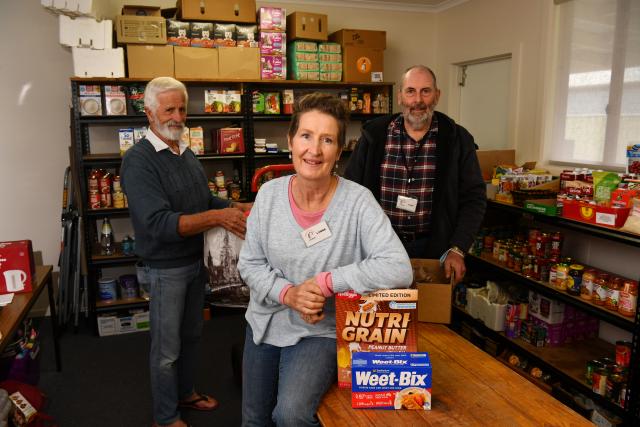
Elsie Lange
It’s no secret the cost of living has become a struggle for people across the state to afford, and local food and support bank volunteers have noticed the difficulties residents face on the ground.
Gisborne Food Bank (GFB) manager Lynne Margaret said the organisation had gauged a slow rise in the number of people accessing more of their services in recent months, as fuel, groceries and paying the bills became harder to afford.
“We’re all expecting that things are going to get more difficult for people,” Ms Margaret said.
She said a recent drop in donations could also be because soaring costs were being felt more broadly.
“It must be affecting a lot of people, not just people who are on low incomes, but everybody,” she said.
The organisation, which operates on Wednesdays and Fridays, supports between 25 and 30 families each week.
Ms Margaret said there were new and different people accessing their services now too.
GFB is just one of many organisations across Sunbury and the Macedon Ranges providing support to people in need.
CareWorks SunRanges is another not-for-profit crisis relief service based in Sunbury, and service manager Jane Williams said she’s also seen the issue firsthand.
She said it seemed like people felt more desperate because they had burned through the safety net they used to have.
“I do know that people are reaching out for what seems to be for different reasons, and not only food related, because the cost of living has gone up, but also because they’re finding they’re at the end of any savings they might have,” Ms Williams said.
On Tuesday, March 29, the federal government announced its 2022-2023 budget ahead of the May election, and promised a tax cut for low and middle income workers worth up to $420, and a $250 on-off payment to welfare recipients and pensioners.
However, Ms Williams questioned whether a $250 payment would go very far for people who needed it most.
“What’s that going to help with? People will just go out and spend it because they’ve not been able to spend anything lately, or will they put it towards a bill, or food for the week or something,” she said.
Australian Council of Social Service chief executive Cassandra Goldie said the federal government’s budget was full of “temporary fixes”.
“The budget does nothing to lift the incomes of people with the least,” Dr Goldie said.
“Whilst we welcome the extension of a $250 bonus payment to people on pensions and allowances, if you’re living on $46 a day, this payment will help for a week or two, but people have to pay the rent 52 weeks a year.”
Ms Margaret said while there is work out there, incomes are simply not keeping up with how much it costs to live day-to-day.
“There’s just pressure coming from all sides,” Ms Margaret said.
“Everyday people, everyone from all walks of life, we’re seeing it hit everybody.”







